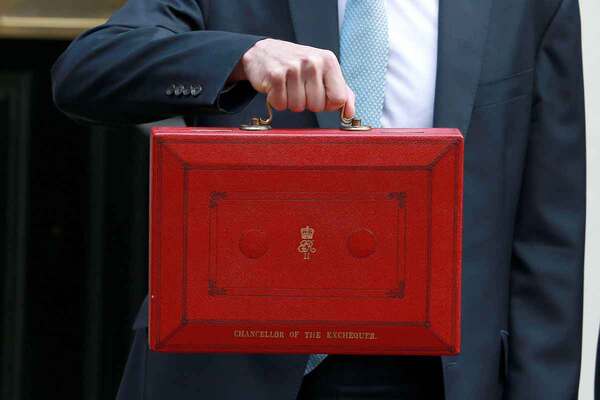You are viewing 1 of your 1 free articles
The Week in Housing: a Budget with nothing to offer on social housing and homelessness
The Week in Housing is our weekly newsletter, rounding up the most important headlines for housing professionals. Sign up below to get it direct to your inbox every Friday
Good afternoon.
There was an exchange during the Spring Budget when the chancellor, a landlord with seven buy-to-let properties, made a jibe at the deputy leader of the Labour Party over whether she paid capital gains tax (CGT) on the sale of the council house she had bought under the Right to Buy.
Angela Rayner’s side jeered and Jeremy Hunt’s side laughed, and with that, the sector’s expected ‘housing moment’ was over. The long-term certainty called for was always going to be a difficult ask during an election year.
Instead, there was funding for new homes in Barking and Canary Wharf, the news that a number of property tax policies – such as CGT – will be tweaked or abolished, and an extension of some support for households struggling with the cost of living crisis.
There was also funding for community-led housing developments. The key takeaways for the sector are here. Unsurprisingly, the Budget was met with frustration, disappointment and dismay at another “missed opportunity”. These are familiar reactions that understandably exasperated sector figures have had to basically every Budget and spending announcement I have covered at Inside Housing over the past two years.
The lack of concrete proposals to tackle the housing crisis was more surprising given that housing secretary Michael Gove had just spoken to Inside Housing in a well-received interview that came with the acknowledgement of a cross-party consensus to build more social rent homes, and a delivery target of 30,000 a year.
A figure significantly higher than the 9,561 social homes built last year, but a great deal under Inside Housing’s 90,000-home Build Social campaign ambition. But there was nothing to boost this tenure or tackle rising homelessness.
Just days before the Budget, the government described it as “completely shocking” that a further 21 unexpected child deaths in temporary accommodation have been uncovered by new research.
Analysis by the National Child Mortality Database took the known number of infant fatalities in this type of housing to 55 in the four years to March 2023 – a figure seemingly not shocking enough to address with any sort of urgency.
The government had just updated the Homelessness Code of Guidance to include cots for children aged under two in temporary accommodation. A welcome change, but the cost and procurement of this accommodation is forcing some councils to declare a housing emergency.
One London council revealed plans this week to set up its own real estate investment trust (REIT) to procure and lease back 300 properties in bid to boost its temporary accommodation provision.
A REIT is a listed fund that buys properties and then lease the homes to local authorities and charities to provide accommodation for people experiencing homelessness.
But they are not without their own issues. In December, Home REIT confirmed that its properties were worth almost 60% less than the £977m it paid for them, as it struggled to collect rent and saw charity clients go bust in the past 12 months.
Meanwhile, senior figures from at least 16 large English local authorities will meet next week to tackle an “increasing threat” to council housing.
Together, they are among the country’s largest local authority landlords, with each managing around 20,000 or more council homes.
In a joint statement, they said: “An affordable, decent home is a foundation for a good life – essential for health, stable work and education. Council homes will play a crucial role in solving the national housing crisis.
“However, a broken financial model is making our vital work to ensure our residents’ homes are warm, decent and safe increasingly challenging – let alone our ability to build the new homes our communities need.”
The local authorities said centrally imposed caps on income along with high inflation and interest rates had forced many to slow or stop new development and vital maintenance projects.
As an example, one council in West Yorkshire was found to have failed to meet the English regulator’s consumer standards due to tens of thousands of outstanding repairs and fire safety actions.
A London council has also set out multimillion-pound plans to replace cladding on 580 terraced homes amid fears of a low-rise cladding crisis. Under the new building safety regime, properties under 11 metres tall are not covered by the provisions in the Building Safety Act 2022.
A low-rise cladding crisis at the same time as a staffing crisis is not something the sector needs. But that is the alarm being sounded ahead of the Building Safety Regulator’s (BSR) fast-approaching new building control regime.
A letter sent on 1 March, seen by Inside Housing, by Chris Griffin-McTiernan, deputy chief inspector of buildings at the BSR, warned that failure to register staff could leave authorities unable to discharge their statutory duty.
Under the post-Grenfell Building Safety Act, building control is becoming a regulated profession, which means building inspectors have to prove their competence and register with the BSR by 6 April.
The government will then publish a register of inspectors for England and a separate one for Wales. However, multiple parties have called for an extension after fears that many inspectors will miss this deadline.
All of this is taking place against the backdrop of a challenging economic climate where an increasing number of social landlords are seeking loan carve-outs and restructuring legacy debt.
At the same time, the English regulator’s latest quarterly survey of private registered providers’ financial health found that interest cover had fallen for the third quarter in a row to the lowest level ever recorded, as landlords continue to increase spending on new and existing homes.
From Westminster, lobby journalists have continued to publish reports that the Renters (Reform) Bill will be watered down or scrapped all together – a possibility that charities and sector bodies have urged the government to resist.
There will be a new commission into England’s housing shortage chaired by economist Dame Kate Barker.
She previously sat on the Bank of England’s monetary policy committee between 2001 and 2010 and led landmark inquiries into housing and planning for the New Labour government in that period.
Her new commission will aim to make recommendations soon after the next general election on how to respond to England’s housing shortage.
It will address how to free up more land for development; the role of specialist housing for students and older people; sustainability; and ensuring affordability.
If she hasn’t already, Ms Barker can read how investing in social housing could add billions of pounds to the economy, including £12bn in profit to the taxpayer, here.
Have a good weekend.
Stephen Delahunty, news editor, Inside Housing
Say hello: stephen.delahunty@insidehousing.co.uk
Editor’s picks: five stories you may have missed
Peabody tenant wins tribunal battle over ‘excessive’ service charge
Ombudsman opens applications for second resident panel
City council completes major stock transfer from Clarion
Hundreds of Aberdeen tenants to be permanently rehoused due to RAAC
Sign up for our Week in Housing newsletter
Already have an account? Click here to manage your newsletters












